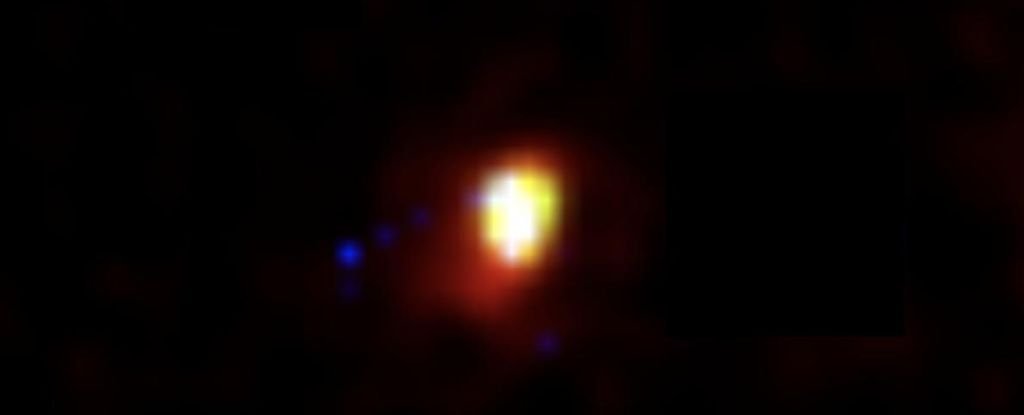Dr. Joe said it's falsifiable but that he couldn't think of anything specifically that would falsify it. Isn't that the very definition of contradiction?
This is an important question and often misunderstood.
If a "theory" is introduced that presents no means, even in principle, in testing the theory objectively (measurements by many), then by definition, it is definitely
not a scientific theory. This is a hard rule that separates science from philosophy and religion, which must rely on subjective viewpoints. Science includes subjectivity since ideas and reasons must be drawn from the objectivity needed to create the theory. But a key tenet in science when it comes to theories and hypotheses is the requirement for falsifiability.
BBT is no exception. Indeed, the reason it is now mainstream is because of all the tests that it has passed. The ultimate test of its veracity is found in all the predictions that came from the requirements for the CMBR. The Lyman-alpha forest test was another.

Prior to the BBT was the Static Theory for the universe, which held it was simply assumed to be infinite in both size and time. Einstein mocked Lemaitre's introduction of his BBT. [Lemaitre called it the "Primeval Atom" since it began out of a something incredibly tiny, but never out of nothing.]
A single Arp galaxy showing a definitive physical connection between galaxies of widely varying redshifts would do it.
Yes.
I like humor especially from great scientists. When Einstein was informed that 100 German scientists and other PhDs wrote a letter decrying his GR theory, his response was something like, "Why 100 when only 1 is needed?" Brilliant example of how real science works. Ultimately it's not about any consensus, especially by those with social or political agendas.
Two adjacent galaxies that have very dissimilar redshifts would be hard evidence that something is amiss with the redshift being used as a tool for determining velocity. If two galaxies appear to be adjacent but aren't, then such a claim would be false. If they have what appears to be a connecting tail, then they only appear more likely than the y otherwise would. There is extraordinary evidence that redshift does indicate velocity (or, more appropriately cosmological expansion since even police radar reveals normal velocity relationship with redshift).
But, likewise, it will now take extraordinary evidence to match the extraordinary claim that two galaxies exist adjacent to one another but with significantly different redshifts. This evidence, as far as I know and I'm not an astronomer, doesn't exist.
Consider how so many double stars are noted but, today, they are better established to be either binaries or separated by great distance. Appearances can be very deceiving.
The discovery of objects older than the universe itself would obviously present a conundrum to the BB.
Indeed, this has already happened. When Hubble found his Cepheid variable in Andromeda, it was used to calculate the age of the universe, which was something like 2 billion years. But this age quickly became a problem when geologists determine the age of Earth be be greater than 3.5 billion years. The Earth and stars were found to be older than the universe. No small contradiction.
Hubble, however, chose the dimmer type II Cepheids for his model and thus greatly underestimated the distance to Andromeda. Once this was corrected, suddenly the universe was older than Earth. This is how science works - it is always self-correcting as it is always about how things work, never "why".
Or so one might think. That's happened before and the response is merely to push the age of the universe back far enough to incorporate the new observation. Seems like cheating. But I guess that's was Dr. Pesce means by "tweaking." If there was a prize for the model with the most tweaking, the BB would be leading the pack.
No. There's a big difference between tweaking and something "ad hoc". It must improve a theory objectively, not subjectively. Tycho's model for our solar system was so "ad hoc" that most scientists simply ignored it when the Ptolemy model got blown out of the water by Galileo's objective discoveries.
Copernicus was favored, even by the Church eventually, because it did something all grand theories must do... demonstrate unification. His explanation for retrograde, Kepler's math that showed more distant planets travelled slower around a very massive object, etc. brought a unification that was far more reasonable to those exercising reason.



